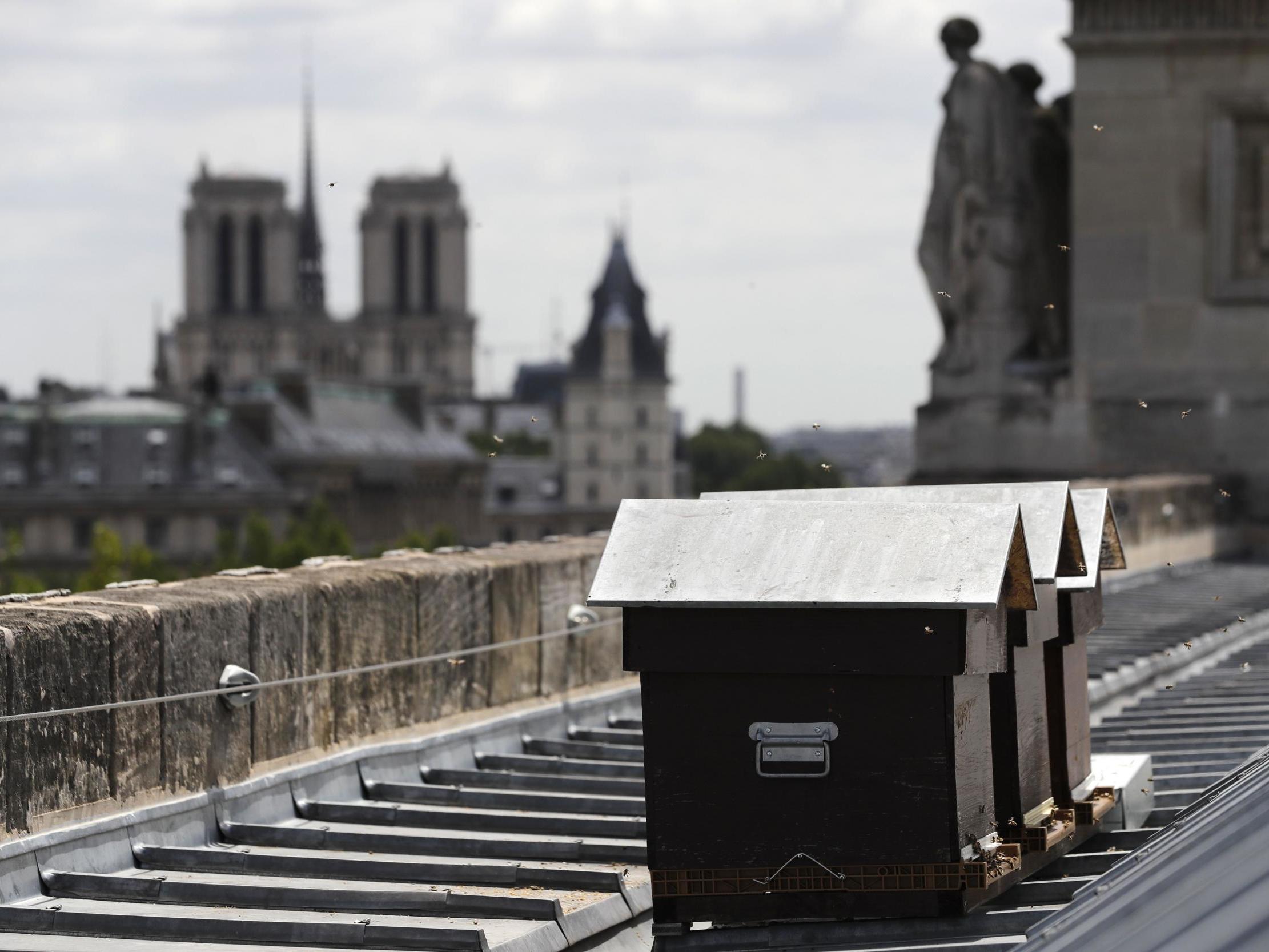Bees survive Notre Dame fire after getting ‘drunk on smoke’
Thousands of insects on cathedral's roof emerged unscathed from inferno, confounding beekeepers who feared they had perished

Hundreds of thousands of bees that live in Notre Dame’s roof survived the raging fire – to the relief of beekeepers who presumed them dead.
Hunkered down in their hives, protecting the queen, the roughly 180,000 bees emerged unscathed from the inferno that tore through the Paris landmark this week.
“It’s a big day,” said Notre Dame beekeeper Nicolas Geant on Friday. “I am so relieved. I saw satellite photos that showed the three hives didn’t burn.
“Instead of killing them, the CO2 [from smoke] makes them drunk, puts them to sleep,” he said.
Mr Geant has overseen the insects since 2013, when the hives were installed on the wooden roof the stone sacristy at the south of the cathedral.
Notre Dame’s smallest residents moved in as part of a Paris-wide initiative to boost declining bee numbers. Hives were also introduced above Paris’s gilded Opera Bastille.
The cathedral’s hives were lower than Notre Dame’s main roof and the 19th-century spire that burned and collapsed during Monday evening’s fire.
Bees do not have lungs so they cannot die from smoke inhalation – but they can succumb to excessive heat. European bees, unlike some other bee species, do not abandon their hives when facing danger.
“When bees sense fire, they gorge themselves on honey and stay to protect their queen, who doesn’t move,” Mr Geant said. “I saw how big the flames were, so I immediately thought it was going to kill the bees. Even though they were 30m lower than the top roof, the wax in the hives melts at 63C.”
If the wax that protects their hive melts, the bees inside simply die, Mr Geant explained.

Smoke, on the other hand, is innocuous. Beekeepers regularly smoke out the hives to sedate the colony whenever they need access inside. The hives produce around 75kg of honey annually, which is sold to Notre Dame employees.
Notre Dame staff spotted the bees on top of the sacristy on Friday, buzzing in and out of their hives.
“I wouldn’t call it a miracle, but I’m very, very happy,” Mr Geant.
Join our commenting forum
Join thought-provoking conversations, follow other Independent readers and see their replies
Comments
Bookmark popover
Removed from bookmarks